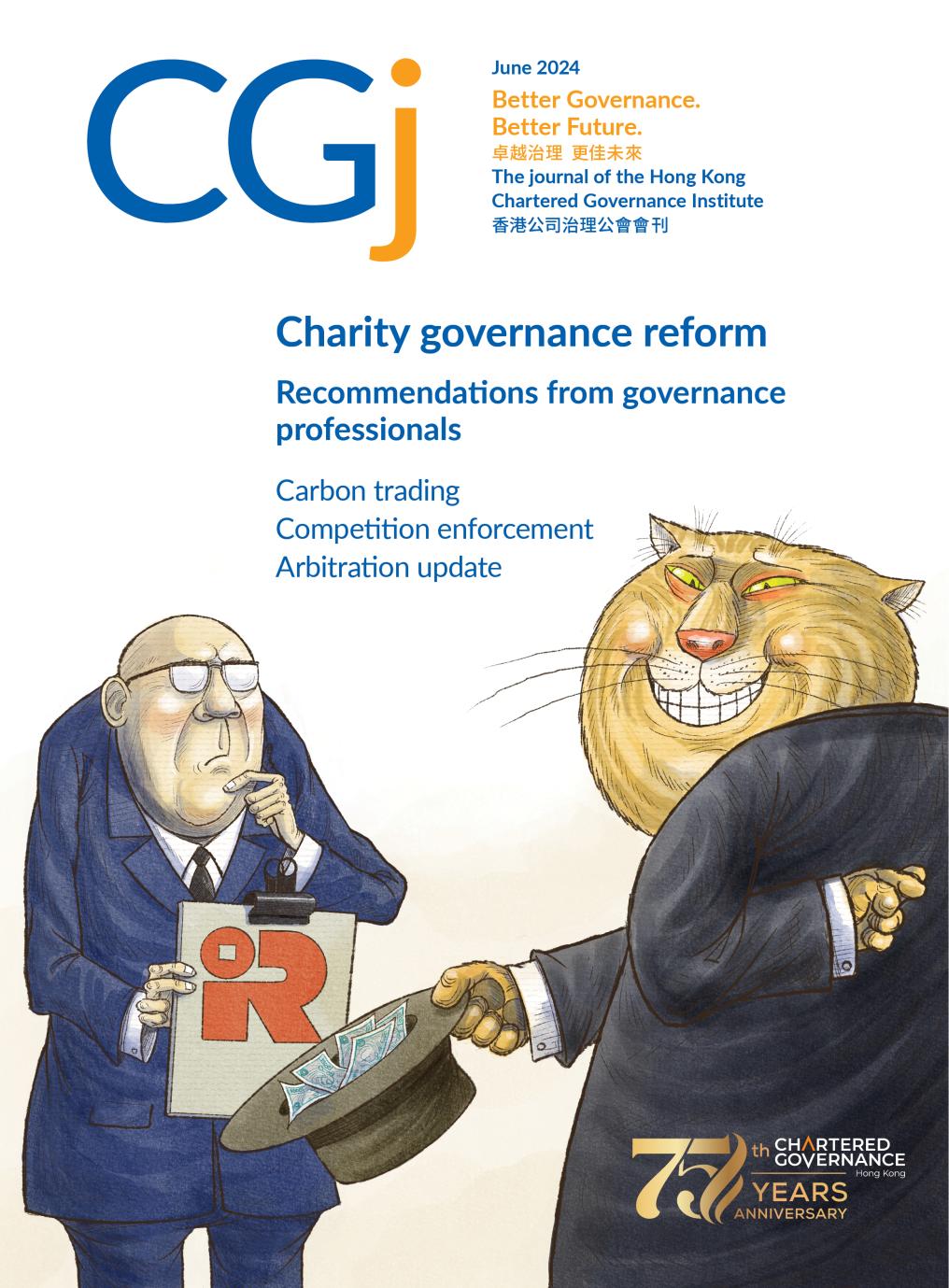Conducting joint operations with the ICAC and the Hong Kong Police Force
Adelaide Luke and team from Herbert Smith Freehills discuss the growing trend for the Competition Commission to conduct joint operations with other authorities, including the recent large-scale dawn raid carried out with the ICAC, and examine the implications for enforcement risk.
Highlights
- the Competition Commission of Hong Kong (HKCC) recently conducted one of its largest dawn raids, in its first joint operation with the ICAC, in which it exercised its powers under the Competition Ordinance to search premises under warrant, as well as to require relevant parties to produce documents and information
- the HKCC has increasingly been working with other enforcement authorities, including the Hong Kong Police Force and various government departments, which increases the enforcement powers as well as the risks
- the joint operation with the ICAC included searches not only of the relevant offices, but also of the residences of the individuals concerned
On 18 April 2024, the Competition Commission of Hong Kong (HKCC) reported that it had conducted unannounced inspections at around 40 different locations in conjunction with the Independent Commission Against Corruption (the ICAC), arresting 20 individuals in connection with a syndicate ‘engaging in corruption and tender-rigging in relation to building maintenance’.
The conduct relates to two renovation projects on Hong Kong Island and four in the New Territories, half of which are already underway. The total sum of the relevant contracts amounted to approximately $180 million and the bribe payments involved are allegedly over $1 million.
This is one of the largest dawn raid operations announced by the HKCC to date. In addition to exercising its powers under the Competition Ordinance (the Ordinance) to search premises under warrant, the HKCC also exercised its powers to require relevant parties to produce documents and information.
Increasing use of joint operations
Whilst this was the first joint operation between the HKCC and the ICAC, the HKCC has increasingly been working with other enforcement authorities and conducting joint operations. These include a number of raids conducted jointly with the Hong Kong Police Force (the HKPF), or otherwise supported by the HKPF, in relation to:
- the funeral service case (raids taking place in January 2024) and the funeral undertaker case (raids taking place in August 2023)
- the Aberdeen fish wholesale case (raids taking place in June 2023 and December 2022, as well as a joint operation conducted by the HKCC together with several government departments including the Agriculture, Fisheries and Conservation Department, the Food and Environmental Hygiene Department, the Immigration Department and the Marine Department in November 2022), and
- the Tuen Mun building maintenance project case (raids taking place in January 2022).
The significance of the trend towards joint operations conducted by the HKCC should not be overlooked.
- Firstly, whilst there are certain limitations to the HKCC’s enforcement powers under the Ordinance, these limitations can be overcome if the HKCC cooperates with another enforcement authority that has greater enforcement powers than the HKCC. Most notably, whilst the HKCC does not have the power to arrest individuals during a search, we can see from the latest raid that arrests were made by the ICAC on suspicion of infringement of the Prevention of Bribery Ordinance. Conversely, the HKCC may also be able to exercise certain investigation powers (such as the power to require an individual to provide documents or information), which other authorities may not have. This means that the risks arising from a joint operation can be greater and harder to control, compared with operations that are conducted separately by the authorities.
- Secondly, the use of joint operations by the HKCC can be expected to allow the HKCC to conduct operations more effectively and efficiently, which is reflected in the scale of the operations that are conducted jointly with the ICAC and the HKPF. In the long run, this may also mean that the HKCC may be able to conduct more raids or otherwise engage in more investigations and enforcement activity.
the significance of the trend towards joint operations conducted by the Competition Commission should not be overlooked
Raids on domestic premises
The HKCC’s press release states that this joint operation included searches conducted not only in the offices of the relevant parties, but also in the residences of the individuals concerned. This is the first time that the HKCC has confirmed in a press release that it has raided domestic premises.
Whilst many undertakings have put in place protocols relating to dawn raids in the workplace, risks increase when raid are conducted at the domestic premises of employees.
- A home raid is likely to be more stressful for the employee, and the presence of family members and absence of work colleagues can give rise to different dynamics. This may mean that the employee is less able to react calmly and rationally.
- The undertaking is less able to adhere to (or be less able to monitor the adherence of) any internal protocols it has in place for dawn raids. This may include guidance on how to handle direct communications with or questions from officials conducting the raid, or guidance on how to handle potentially privileged documents.
- The above can also have a detrimental effect on how the business is able to handle any ensuing investigation steps. For example, undertakings are typically advised to ensure that all of the officials conducting a raid on business premises are shadowed, and that detailed notes are taken of the searches and other actions undertaken by the officials, in order to gather more information about the subject of the potential investigation. This will be more difficult to achieve if the raid takes place in the domestic premises of an employee.
In light of the above, it is important that undertakings adequately train their employees so that they are ‘dawn raid ready’, regardless of whether the raid takes place at the workplace or at domestic premises.
it is important that undertakings adequately train their employees so that they are ‘dawn raid ready’, regardless of whether the raid takes place at the workplace or at domestic premises
Criminal consequences for obstruction
As indicated in the HKCC’s press release, the HKCC may also pursue further action against several individuals for obstructing its investigation by refusing to comply with its requests, which can amount to a criminal offence under sections 52 and 54 of the Ordinance.
The HKCC has faced obstructive behaviour during a dawn raid before – for example, during the raids conducted by the HKCC in relation to the cleaning service cartel case in December 2021, the HKCC found that certain documents and links had been deleted from the computers of one of the investigated companies.
When dealing with an investigation by the HKCC, both undertakings and individuals should be reminded of the severe sanctions that can be imposed for obstructive behaviour under the Ordinance, which can be more severe than the sanctions that may be imposed for a substantive breach of the competition rules.
The forms of obstructive behaviour prohibited under the Ordinance, and which can give rise to criminal liability, include:
- failure to comply with a requirement or a prohibition imposed pursuant to the Ordinance
- destroying or falsifying documents that have been required to be produced
- obstructing a dawn raid conducted under warrant, and
- providing false or misleading documents or information to the HKCC (or to another person, whilst knowing the document will be provided to the HKCC).
Continued focus on bid rigging and the building renovation sector
Bid-rigging conduct and the buildings renovation sector have both been strong enforcement focuses of the HKCC since its inception.
Indeed, within the very first year of the Ordinance coming into force, the HKCC published a study of tender practices in the building renovation and maintenance market, looking at practices before the Ordinance came into full force. In that report, although the HKCC did not identify specific instances of conduct that would have infringed the Ordinance were the law already in effect, the HKCC concluded that the patterns identified would likely warrant closer investigation. Following that, the very first case pursued by the HKCC before the Competition Tribunal related to price fixing and market sharing between several construction and engineering companies.
Similarly, some of the earliest large-scale publicity and educational campaigns run by the HKCC related to bid rigging, and one of the earliest cases brought by the HKCC before the Competition Tribunal was in relation to bid rigging in the IT sector.
Whilst the HKCC has since broadened its sights and pursued cases in a wide range of sectors, and pertaining to various kinds of anti-competitive conduct, this latest enforcement activity is a clear sign that the HKCC has certainly not moved on completely from familiar ground and should dispel any impression that the enforcement risk has dampened in these areas.
Adelaide Luke, Partner, Head of Competition, Asia; Kyle Wombolt, Partner, Global Head – Corporate Crime and Investigations; Howard Chan, Senior Associate; and Nicole Chow, Associate
Herbert Smith Freehills
Copyright © April 2024 Herbert Smith Freehills



